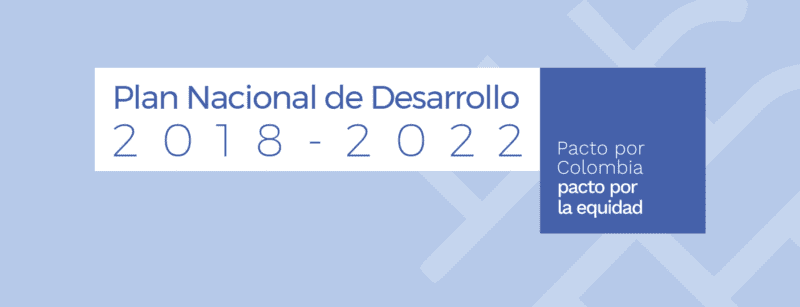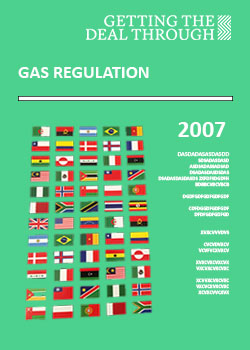How the National Development Plan law impacts Colombia´s energy sector ?

The National Development Plan 2018-2022 “Pact for Colombia, Pact for Equity” (hereinafter as “NDP” or “NDP Act”) has decisively catalogued the national energy industry (mining, electricity and oil & gas sectors) as one of the cornerstones for State income generation and regional development. Before presenting the most visible changes brought by the NDP Act in such subject, it is important to note that, in collaboration with other authorities, the government prepared the document “Bases for the National Development Plan 2018-2022” (hereinafter “Bases of the NDP” or “NDP Bases”) which develops in a more detailed manner the 16 pacts through which development objectives are to be achieved. According to article 2 of the NDP Act, the Bases of the NDP form an integral part of the former.

Once the NDP`s organic structure is decomposed, it is evident that the energy industry is labeled as an engine to foster social-economic growth (Pact 9 of the NDP). In fact, with a total of COP 97,874 million, it is the third pact of the entire NDP in receiving more national resources. This fact is eloquent enough to demonstrate the decisive intention of setting the path for national and foreign stakeholders to articulate ambitious plans to utilize natural resources both efficiently and responsibly. The DNP has set the concrete objective of increasing the investment attraction index from 56.1 to 60 in the next four years, and to do so the energy industry has been portrayed as a strategic “battle horse” that is set to guarantee, among other medium term goals, electricity supply for 100.000 new households
Expanding Colombia´s energy matrix and coverage
An important provision of the NDP concerning the energy industry and its capacity to generate wealth, one that without a doubt is conceived to incentivize private investments in the electric sector, can be found in article 126. It gives a mandate to the Órgano Colegiado de Administración y Decisión – OCAD, as the institutional body that evaluates and approves the investments financed by the Science, Technology and Innovation Fund, to prioritize projects pursuing the expansion of electric energy coverage. This means an authorization for the OCAD to approve funding of electricity-coverage-related projects for up to COP 500,000 million. This is a clear statement against the threats suffered by non-interconnected zones (ZNI), which according to the National Public Services Authority, reaches 51% of Colombia´s territory, occupying 70 municipalities nationwide.[1] Similar incentives are granted to energy generation from non-conventional energy sources – NCES. Article 179 extends from 5 to 15 years the period in which NCES’ investors are entitled to deduct 50% of their NCES investments from their income tax.
It is also important to note that the NDP Bases are explicit in requiring the Ministry of Energy of Colombia, the Mining-Energy Planning Unit – UPME, and the Energy and Gas Regulatory Commission – CREG to do what it takes to facilitate the incorporation of NCES to the National Interconnected System – SIN . In addition, article 289 of the NDP established – for the first time – a mechanism to transfer funds from NCES projects to the local communities where these projects are built.
However, fostering the consolidation of NCES to supply national demand should not to be conceived only as a component to guarantee sole economic growth, or as a way to create job posts through the introduction of new actors – private investors – on remote regions, or as just a plan to improve the energy industry´s operation capacity and reliability. Besides these perks caused by the introduction of NCES into Colombia´s economy, diversifying the national generation matrix has also been conceived as a strategic factor to fight environmental hazards, promote sustainable development and improve health in congested urban zones.
Now, despite the fact that the NDP’s intends to diversify the national energy matrix and plans to generate 1500 MW of electricity from renewable energies in the next four years (currently, Colombia´s electricity generation from NCES stands in 22.4 MW), it is undeniable that the Colombian government continues to rely on the primary sector as a way to benefit from currency flows, and take advantage of natural resources – primarily, oil – to increase foreign direct investments – FDIs. In fact, the NDP and its bases are explicit in considering non-renewable natural resources as crucial tools to finance poverty reduction plans and regional development. In 2018 alone, royalties derived from the exploitation of these natural resources meant COP 7.4 billion to be distributed amongst regions.
Let’s see:
A brand new Non-Renewables Plan
The value of having a robust energy industry is evident. Its importance is clearly portrayed by recent national macroeconomic variables. In 2017, the GDP in the energy sector rose to COP 44.2 billion representing %5.35 of the national GDP. Exports associated to the energy industry meant a USD 20.9 billion income and represented 55% of Colombia´s total exports. Furthermore, the sector attracted USD 4.1 billion of foreign investments, representing %6.65 of total FDIs.
It is DNP´s paramount objective to increase oil reserves in order to guarantee self-sufficiency in the medium and long term (currently, proven oil reserves are estimated to guarantee Colombia`s self-sufficiency for 5.7 years). To suffice that purpose, even though not explicitly introduced in the NDP Act, the NDP´s Bases envision a two-folded plan.
First, it authorizes the Ministry of Energy of Colombia to study the viability of both exploration and production of non-conventional reservoirs (mainly exploitable through hydraulic fracturing, aka fracking). Furthermore, it commends the National Hydrocarbons Agency – ANH to elaborate the technical studies to update and complement current knowledge on exploration and production of non-conventional reservoirs, as well as to determine the areas where these activities are to be performed, and the social-environmental impacts linked to them. Ministry of Environment of Colombia is also entrusted to issue the terms of reference to be used in the elaboration of the environmental impact assessments related to the production projects of non-conventional reservoirs.
The second strategy seeks to consolidate off-shore production projects. To operate in a secure and efficient manner, these kinds of projects demand a sound legal framework that allows permanent institutional interaction, especially during production stages. To do so, the NDP commands different administrative authorities including Colombia´s Ministries of Energy, Environment, Transport, National Defense and Labor to work cohesively in order to elaborate the technical standards to guarantee safety conditions during production processes. In addition, these entities shall implement the Contingency National Plan to prevent and control off-shore oil spills, and the Ministry of Environment is specially instructed to issue the terms of reference to guide the elaboration of environmental impact assessments for off-shore projects, develop the Marine-Costal Ecosystems Compensation Manual, and implement the Marine Seismic Exploration Program to guarantee the application of the best international standards for off-shore operation projects.
What’s next?
Conditions are set for FDIs to increase, particularly in energy-related projects, and the extractive industry demands, fundamentally, institutional and legal stability. It is necessary for “game rules” to be consistent and inspired in the coordinated work of both national and regional authorities, particularly on decision-making and socialization processes. The lack of certainty about investment conditions and applicable regimes affects both investors and territories/communities where projects are to be developed. Undoubtedly, this is one of the major challenges faced by Colombian administrative authorities in charge of leading natural resources exploitation processes, especially considering the importance that in the next four years would be given to the operation of non-conventional reservoirs.
Feel free to see more details about National Development Plan 2018-2022 in this short video (in spanish).

What does the IBA mean to you?
CAUSE FOR DISOLUTION OF COMPANIES DUE TO NON-COMPLIANCE WITH THE HYPOTHESIS OF CONTINUING BUSINESS

